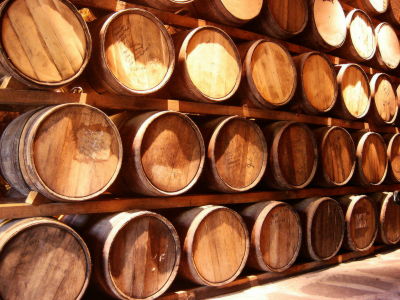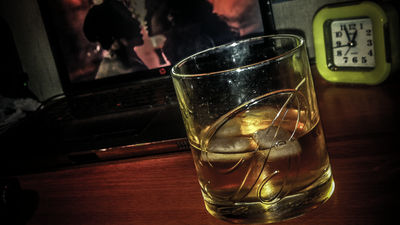How does the taste of wine aged in outer space change?

Since the quality of wine changes depending on the grape varieties used as raw materials, the soil in which it is cultivated, and the climate, wine producers aim to improve the quality by repeating trial and error. European space development startup
Château Pétrus: does a case of top-notch Bordeaux really taste different after being in Space? | Euronews
https://www.euronews.com/2021/03/24/chateau-petrus-does-a-case-of-top-notch-bordeaux-really-taste-different-after-being-in-spa
Space Cargo Unlimited and ISVV have collaborated to send 12 bottles of Château Petrus and 320 vines to the International Space Station (ISS). Dr. Michael Lebert, a researcher who supported the experiment, said, 'The main purpose of going to space is to see how the wine aging process works and how it can be affected. That was it. '
In the following movie, you can see the tasting party comparing 'wine aged in space for one year' and 'wine aged on the ground for the same period'.
Château Pétrus: does a case of top-notch Bordeaux really taste different after being in Space? --YouTube
The 12 bottles of wine launched by Space Cargo Unlimited and ISVV have been aged on the ISS for a year before returning safely to Earth.
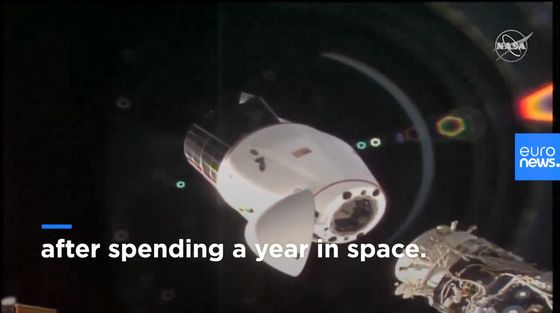
Philippe Darriet, director of the ISVV Bordeaux branch and wine expert, has a space-aged Chateau Petrus in his hand.
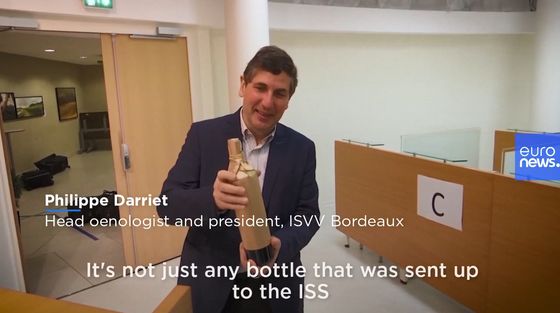
It is said that it was Chateau Petrus in 2000 that was sent to space.
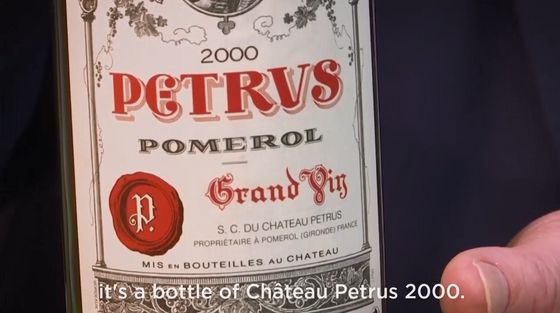
It was opened using a special tool ...
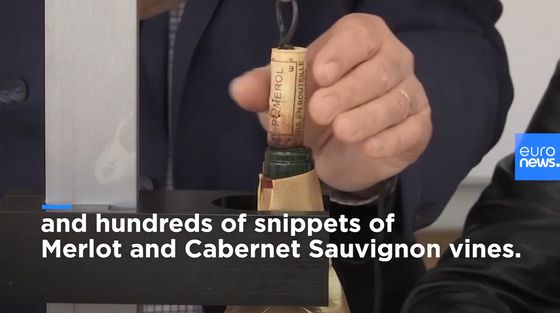
It is poured into the glass little by little. To find out how the space-aged Château Petrus differs from the regular Château Petrus, experts compared it to the ground-aged Château Petrus.

The experts are serious, but they are tasting with a look that they are enjoying somewhere.

Wine expert

Dr. Lebert, who supported the experiment, cites the difference

Understanding the effects of gravity and oxygen on the aging process can lead to the development of ways to ripen wines faster.

In this experiment, the vines used for wine were also sent to space.

Despite the limited light and water in outer space, all 320 scion trees that were launched survived and grew faster than the scion trees on the ground.

Organisms can acquire new properties due to external stress, so putting them under the stress of zero gravity allows grapes to gain resilience to problems such as climate change, disease and salty soils. Expected to have sex. Researchers will analyze the scion further in the coming months to see what has changed after spending a year in space.

Related Posts:



